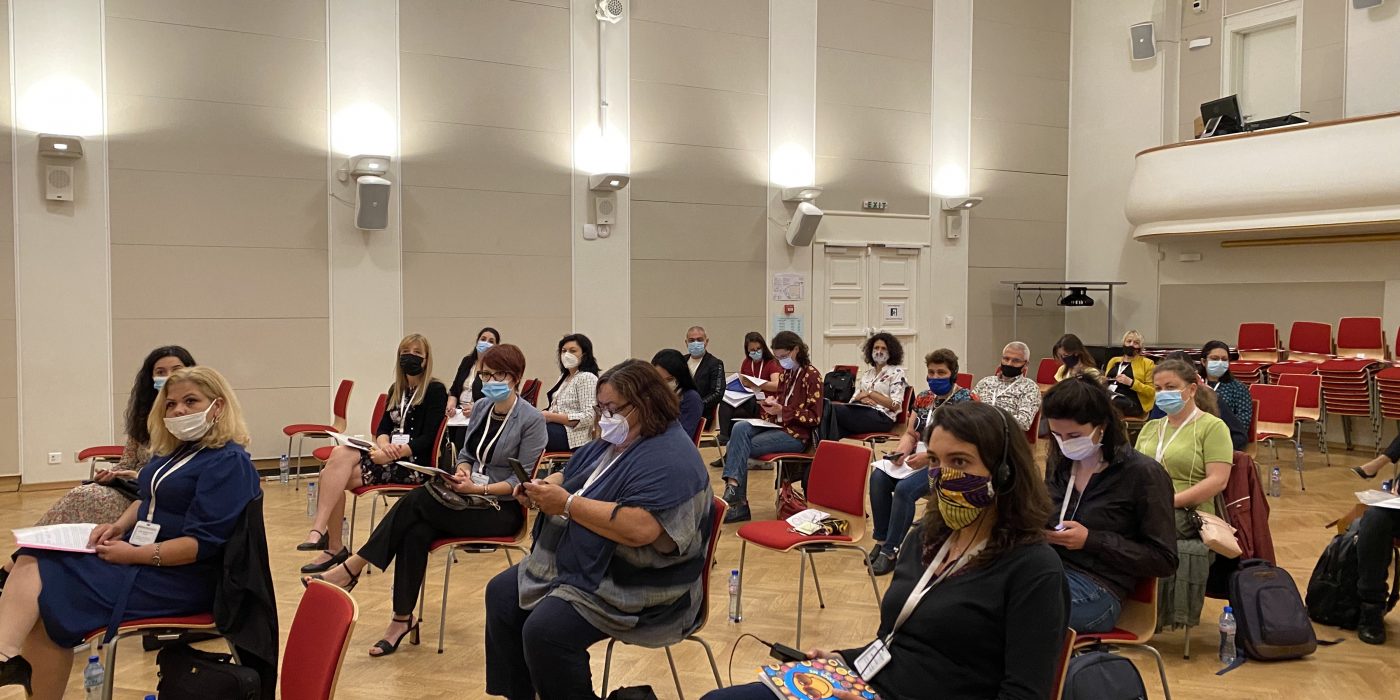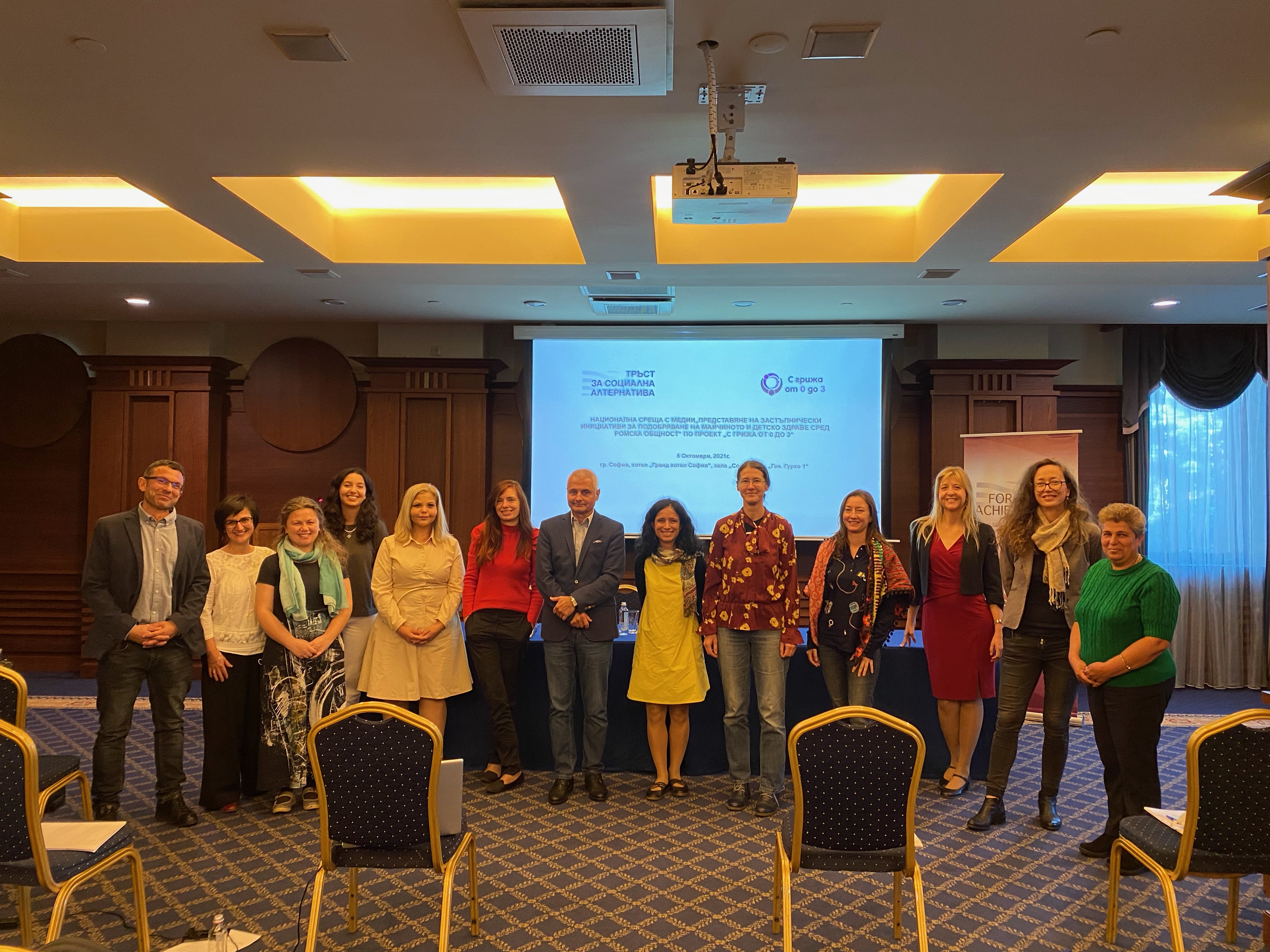The We Care projects aims at improving maternal and children’s health among the Roma community in Bulgaria. It unites the efforts of 11 NGOs in an informal network (Network) that advocates for a systematic change in policies for nurturing care at home for children up to 3 years of age.
The Network has the understanding that only when the specific policies - supporting the quality access to health and social services, adequate nutrition, security and safety, early learning, and responsive caregiving - are effective and cooperatively working could maternal and children’s health be improved.
The project was launched in November 2018 and lasts until September 2022. It is funded by the Open Society Foundation, Porticus Foundation and Trust for Social Achievement Foundation.
The Problem
Research shows that the period from pregnancy to the age of 3 is crucial for every child. Then their brain develops at the fastest rate and forms 80% of it. At this important stage for the child, it is usually the parents (or other caregivers) who establish the environment in which they are growing up. To be able to provide a supportive environment, sectoral policies, programs, and services are needed to support parents effectively and equally, so that the child can develop emotionally, cognitively, intellectually, and socially.
In Bulgaria, the social and economic vulnerability of most Roma families is a common factor that represents a barrier to providing quality care for their child at an early age. The available, but ineffective, targeted services, in support of vulnerable families, further hinder them when seeking support, and subsequently the development of the child. According to data from 2019, from the National Statistical Institute (NSI), in Bulgaria, 62% of families with 3 or more children live at risk of poverty and social exclusion, with the Roma people accounting for the highest share of these. According to the information, every third child between the ages of 0 and 17 lives at risk of poverty and almost every fifth child under the age of 6 lives in extreme poverty.
Extreme poverty - often leading to toxic stress and violence, lack of early stimulation of mental, physical and social skills and malnutrition - can lead to school dropouts and then job losses. Fortunately, this process can be prevented through programs to improve opportunities for full development and change in sectoral policies - health, social care, and protection.

Project goal
Guided by the importance of an integrated approach to policy planning and implementation, the Network advocates for a change in these processes through working on national initiatives in five key areas that affect children’s development:
- HEALTH: Ensuring equal access to health services for every child and prenatal care for every pregnant woman, regardless of her health insurance status;
- NUTRITION: Improving the opportunities for adequate nutrition of children from poor families through the introduction of a specialized nutrition program - information, counseling, and food provision;
- EARLY LEARNING AND RESPONSIVE CARE: Introducing integrated services and programs to improve childcare at an early age through enhancing parental capacity;
- SECURE AND SAFE ENVIRONMENT: Accessible procedures for issuing personal documents and address registration of women and children without valid documents;
- ACCESS TO MEDICAMENTS FOR CHILDREN UNDER 3 YEARS: Providing universal access to medicaments for all children from 0 to 3 years.
To ensure coordination and advocacy in all the above-mentioned areas, the Network is split in groups of 3 to 4 NGOs. Each initiative is being executed by a different partnership of organizations. Their activities are related to the collection of evidence and/or analysis of available evidence on the advocacy problem and its possible solution.

Project Vision
- Policies, programs, and services for providing adequate care during the first 3 years of children's lives support their development by empowering their parents or other caregivers;
- Sectoral policies - health and nutrition, social protection, and security - include integrated services and interventions for emotional, financial, and social support for families with children living in poverty;
- Policies, programs, and services enable communities and other caregivers to ensure the good health and nutrition of children and to protect them from threats;
- Children aged between 0 to 3 years learn early based on responsive and emotionally supportive interaction;
- The policies provide quality access to health and early childhood development services for children up to 3 years of age, as well as pregnant women and mothers from vulnerable groups;
- There is state and/or European funding for the introduction of proven effective maternal and child health services nationwide;
- No discriminatory practices;
- Civic organizations advocate for and participate in the process of planning and measuring the results of existing sectoral policies that have a direct impact on maternal and children’s health.
More information about the initiatives can be found on the website of We Care: we-care.bg.

